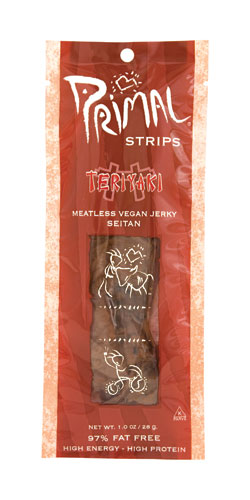Americans are increasingly fired up about climate change.
About two-thirds of American adults acknowledge global warming is a real problem, according to March 2019 polling by Gallup. And a December 2018 survey by researchers at Yale University and George Mason University shows 59 percent of Americans are either “alarmed” or “concerned” about global warming.
Yet aside from reducing your carbon footprint or ramping up household recycling, what can you do to fight climate change? One of the most direct ways you can tackle it is by embracing a vegan diet.
Going vegan “is the single most impactful thing an individual can do to combat climate change. [It’s] far more effective than more commonly known methods such as driving fuel-efficient cars, recycling, using energy-saving light bulbs or taking shorter showers,” says Climate Vegan, a nonprofit organization that promotes veganism as a solution to climate change.
Here are five areas of research that underscore how a vegan diet can lead to a healthier planet.
1. The power of plant-based diets
A study published in 2018 in the journal Science found plant-based diets can reduce environmental emissions — including greenhouse gases — from food production more than 70 percent.
The study, conducted by researchers at Oxford University and Swiss agricultural research institute Agroscope, indicates an animal-free diet delivers more environmental benefits than buying sustainable meat or dairy products. In addition, adhering to an animal-free diet is likely to produce greater environmental benefits that changing how meat and dairy products are produced, according to the study.
In a study published in 2016 by the journal Proceedings of the National Academy of Sciences, researchers at Oxford estimated a global switch to vegan diets eventually could cut food-related greenhouse gas emissions by 70 percent.
Meanwhile, in a different Oxford study — this one published in the journal Climatic Change — researchers found meat eaters are responsible for about 250 percent more food-related greenhouse gas emissions than vegans are.
2. The impact of manure
Animals raised for food in the U.S. produce many times more excrement than all humans in the U.S. do, according to People for the Ethical Treatment of Animals (PETA).
PETA cites data from the U.S. Environmental Protection Agency (EPA) indicating animals at U.S. factory farms produce about 500 million tons of manure each year. That manure gives off greenhouse gases — even when it’s subsequently used as agricultural fertilizer, according to a University of Vermont study published in January 2019 by the Soil Science Society of America Journal.
3. The effects of methane
Not only does manure produce greenhouse gases, but animals (particularly burping, gassy cows) also release methane — a powerful greenhouse gas — from their digestive tracts.
A study published in 2017 in the journal Carbon Balance and Management concluded that global livestock emissions, including methane, were 11 percent higher than previously estimated. Methane, primarily from agriculture, contributes 16 percent of greenhouse gas emissions, according to the Center for Climate and Energy Solutions, citing EPA data released in 2017.
Reacting to the 2017 study, Dave Reay, a professor at Scotland’s University of Edinburgh, told The Guardian newspaper: “As our diets become more meat- and dairy-rich, … the hidden climate cost of our food tends to mount up. Cows belching less methane may not be as eye-catching as wind turbines and solar panels, but they are just as vital for addressing climate change.”
4. The dangers of deforestation
Forests, which absorb greenhouse gases, often are cleared to make room for livestock and crops, according to the Rainforest Alliance. Once they’re chopped down, those trees release the carbon dioxide they’ve been storing. To make matters worse, burning those trees or leaving them to rot generates even more emissions.
The alliance says deforestation triggers about 10 percent of global greenhouse gas emissions. “Ground zero” for beef-driven deforestation is South America, according to the Union of Concerned Scientists.
“A vegan or vegetarian diet is associated with only half the cropland demand, grazing intensity and overall biomass harvest of comparable meat-based human diets,” according to a deforestation study published in 2016 in the journal Nature Communications.
5. The benefits of being meat-free
A United Kingdom study published in 2013 by the journal Energy Policy found eliminating meat from your diet reduces food-related greenhouse gas emissions by 35 percent. That was the highest percentage among 66 food categories that researchers examined.
Backing up that finding is a 2018 study by researchers at Tulane University and the University of Michigan that discovered 20 percent of Americans account for nearly 50 percent of diet-related greenhouse gas emissions in the U.S. The biggest culprit: high levels of beef consumption. The study was published in the journal Environmental Research Letters.
“Reducing the impact of our diets — by eating fewer calories and less animal-based foods — could achieve significant reductions in greenhouse gas emissions in the United States. It’s climate action that is accessible to everyone, because we all decide on a daily basis what we eat,” says study co-author Martin Heller, a research specialist at the University of Michigan’s Center for Sustainable Systems.




